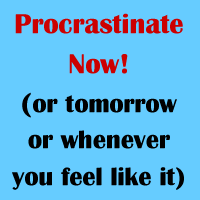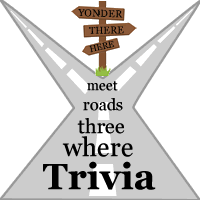
Here’s a recording in a mystery language.
Can you identify the language, and do you know where it’s spoken?

Here’s a recording in a mystery language.
Can you identify the language, and do you know where it’s spoken?
The word for garden in Russian, and also in Belarusian, Ukrainian and Serbian, is сад [sat], which also means orchard. It comes from the Proto-Slavic word *sadъ (plant, garden).
The word for garden in most other Slavic languages is the same: sad in Croatian, Slovenian, Polish, Slovak and Sorbian. There are also similar words in Latvian (sads) and Lithuanian (sõdas) [source].
The word sad also exists in Czech, but just means orchard. The Czech word for garden is zahrada [ˈzaɦrada], which comes from za (for, in, behind), and hrad (castle), from the Proto-Slavic *gȏrdъ* (settlement, enclosed place). So zahrada could be translated as “in/behind the castle” [source].
*The Proto-Slavic *gȏrdъ comes ultimately from the Proto-Indo-European *ǵʰórtos (enclosure), which is also the root of the Irish gort (wheatfield), the Welsh garth (hill, enclosure), the Latin hortus (garden), and the English horticulture, yard and garden, and related words in other languages.

Here’s a recording in a mystery language.
Can you identify the language, and do you know where it’s spoken?
In the BBC adapatation of The Iron Hand of Mars, a novel by Lindsey Davis, one of the babarian Celtic tribes over the Rhine in Germania Libera (Free Germany) speak Welsh. While I do know quite a few Welsh-speaking Germans now, back then they certainly didn’t speak Welsh in that area.
The story is set in 71 AD and involves the chief protagonist, Marcus Didius Falco, being sent on a mission by the Emperor Vespasian to investigate various things along the Rhine, which was then the frontier between the Roman Empire and Free Germany. Various tribe lived in that area, including Celts, Balts, Scythians, Sarmatians and Alans, and some of them probably spoke Celtic languages distantly related to Welsh.
In the radio play it sort makes sense to have the actors playing the Ancient Celts speaking a modern Celtic language – very little is known about the language they spoke back then, so that couldn’t be used. To most listeners, the language would sound foreign and maybe a bit Celtic. As a Welsh speaker though, it was funny to hear Welsh used in this way, but good to be able to understand everything, and nice to hear Welsh being used.
Have you come across other examples of modern languages standing in for ancient languages, or even for alien languages, in this way?
Here are a few words that might be relevant today, if you happen to be in the UK:
Election – the choice of a leader or representative by popular vote, comes from the Anglo-Norman eleccioun, from the Latin ēlectiō (choice, option), from ēligō (I pluck out, I choose).
Vote – a formalized choice on matters of administration or other democratic activities, comes from the Latin vōtum (prayer, votive offering, wish, longing), from voveō (to vow, promise solemnity, dedicate, wish), from Proto-Indo-European *h₁wegʷʰ- (to promise, vow, praise).
Ballot – originally, a small ball placed in a container to cast a vote; now, a piece of paper or card used for this purpose, or some other means used to signify a vote. It comes from Italian ballotta (ballot, shot, ball, boiled chestnut), a diminutive of balla (bale, bundle).
Poll – a collection of votes, from the Middle English pol(le) (scalp, pate), probably from the Middle Dutch pol / pōle / polle (top, summit; head), from Proto-Germanic *pullaz (round object, head, top), from Proto-Indo-European *bolno-, *bōwl- (orb, round object, bubble), from *bew- (to blow, swell). The meaning of a “collection of votes” was first recorded in 1625, and came from the notion of counting heads.
Labour – comes from the Middle English labouren, from Old French laborer (to work, labour), from Latin laborare (to labor, strive, exert oneself, suffer), from labor (labor, toil, work, exertion).
Liberal – comes from Old French liberal (appropriate for a free person, generous, giving), from the Latin līberālis (befitting a freeman), from līber (free).
Conservative – comes from the Middle French conservatif (conservative), from Latin cōnservō (to preserve, conserve), from con- (with) and servō (to save, rescue, preserve, retain, watch).
Tory – comes from the Middle Irish tóraidhe, (outlaw, robber or brigand), from tóir (pursuit) [More details].
Source: Wiktionary.

Here’s a recording in a mystery language.
Can you identify the language, and do you know where it’s spoken?

Procrastination – “the act of postponing, delaying or putting off, especially habitually or intentionally.” From the Middle French procrastination, from the Latin prōcrāstinātiō (a putting off until tomorrow), from prōcrāstinō (procrastinate), from prō (of) + crāstinus (tomorrow), from crās (tomorrow) [source].
Crās comes from the Proto-Italic *krās, and is probably from the Proto-Indo-European *ḱerh₂- (head, top), which is the root of words for head, horn, cow and others in various Indo-European languages
[source].
Crās became crai in Italian, crás in Portuguese and cras in Sardinian. These all mean tomorrow, but only the Sardinian one is still used. Tomorrow is domani in Italian – from the Late Latin dē māne (of the early morning), amanhã in Portuguese – from Vulgar Latin *ad maneana (at morning). The French demain (tomorrow), and the Romanian dimineață (morning), come from the same root as the Italian domani.
The antonym of procrastination is precrastination / pre-crastination, or “the completion of a task too quickly or too early, when taking more time would result in a better outcome” [source]. It was coined by David Rosenbaum in an article he wrote in 2014: Pre-crastination: hastening subgoal completion at the expense of extra physical effort. [More information].
I have a tendency to procrastinate, and often put off things that don’t seem important or urgent. For example, there’s a pile of papers on my desk that could do with filing, and I might just get round to it one of these days. It’s not the end of the world if I don’t though.
Sometimes, when I’m in a getting-things-done-mood, I go round doing all the things I’ve been putting off for days/week/months/years. Or at least as many of them as I can before I get distracted by something more interesting.
Some things I put off and do something easier instead – writing this blog post, for example, rather than recording the next episode of my podcast, or doing some language lessons rather than practising one of my instruments.
I precrastinate as well, but wasn’t aware of it. Or at least I didn’t have a word for this practice until now.
Are you a procrastinator, and/or a precrastinator?
What task / jobs / activities do you tend to put off?
What things to you prefer to do instead?
One of the random Swedish words I learnt recently that I rather like is slumpmässig, which means random, arbitary or haphazard, and isn’t just en slumpmässig radda bokstäver (a random jumble of letters).
Some other examples of how it’s used include:
Related words include:
Source: bab.la dictionary
The English word slump is possibly related to the Danish and Norwegian word slumpe (to happen on by chance), which comes from the Middle Low German slumpen, and may be onomatopoeic in origin [source].
Incidentally, the English word random comes from the Middle English randoun / raundon (force, magnitude, haste, intensity), from the Old French randon, from randir (to run, gallop), from the Frankish *rant / *rand (run), from the Proto-Germanic *randijō, from *rinnaną (to run), from the Proto-Indo-European *(H)r ̊-nw- (to flow, move, run) [source].
Which is all a bit random, is it not?

Here’s a recording in a mystery language.
Can you identify the language, and do you know where it’s spoken?

I learned the other day that the word trivia (insignificant trifles of little importance), comes from the Latin trivia, the plural of trivium – crossroads, public space, or literally “a place where three roads meet”. From trēs (three) and via (road, street, way, journey, march, passage, way method).
Apparently this term came to be used for anything commonplace. Also, beginners courses in universities used to be called trivium, and the word came be used to refer to things that are basic, simple or trivial [source].
The Latin word via comes from the Proto-Indo-European *weǵʰ- (to bring, to transport), which is the root of such English words as way, wagon, wain (as in hay wain), weigh, wag, vehicle, vector, voyage, obvious and devious [source].